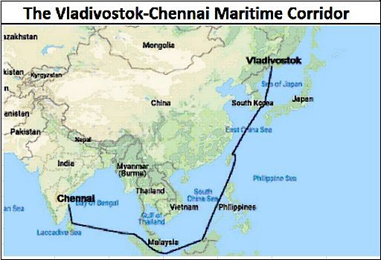
Chennai-Vladivostok Route talks on, dedicated shipping service under consideration too
CHENNAI : India’s Shipping Ministry, in collaboration with businesses and Russian stakeholders, is actively pursuing agreements to solidify cargo movement details along the Chennai-Vladivostok Route, a critical segment of the Eastern Maritime Corridor. Discussions also include the potential establishment of dedicated shipping services to enhance commercial viability. In the next three to six months, stakeholders aim to develop concrete action plans and operational proposals, according to a senior official from the Ministry of Ports, Shipping, and Waterways.
Union Minister Shri Sarbananda Sonowal expressed optimism about the progress of talks, emphasizing the importance of operationalizing the route expeditiously. A workshop held in Chennai in November 2023 urged stakeholders to focus on operational intricacies, seize business opportunities, and ensure the route’s economic sustainability.
Notably, significant interest has been expressed in utilizing the route for shipping coking coal, a vital raw material for steel production, with India being one of the largest importers and Russia among the top suppliers to Indian mills. Leading steel manufacturers are exploring the corridor for importing coking coal, indicating a potential surge in cargo volume. Recent discussions between Russian and Indian stakeholders in Chennai underscored the commitment to advancing the route’s implementation.
Indian officials are expected to visit Vladivostok soon to expedite execution and operationalization. The route, which reduces travel distance between the two countries by 5,600 nautical miles compared to existing routes, is poised to significantly decrease transportation time by nearly 50%. The Eastern Maritime Corridor promises to revolutionize India-Russia trade, offering a more efficient alternative to traditional routes. Despite global challenges, the Chennai port has exhibited resilience, with notable growth in traffic, including petroleum, oil, lubricants (POL) shipments, and container cargo, underscoring the port’s strategic importance in facilitating international trade.

